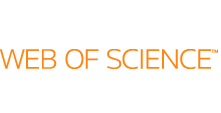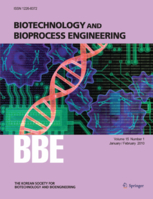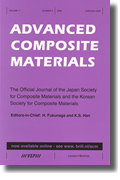The Korea Citation Index is a citation index covering research in South Korea.
The Korea Citation Index is a citation index covering research in South Korea.
CiteSeerX is a public search engine and digital library for scientific and academic papers, primarily in the fields of computer and information science.

Daejeon is South Korea's fifth-largest metropolis, with a population of 1.5 million as of 2019. Located in the central-west region of South Korea alongside forested hills and the Geum River, the city is known both for its technology and research institutions, and for celebrating its natural environment, with most mountains, hot springs, and rivers freely open for public use. Daejeon serves as a hub of transportation for major rail and road routes, and is approximately 50 minutes from the capital, Seoul, by KTX or SRT high speed rail.
A citation index is a kind of bibliographic index, an index of citations between publications, allowing the user to easily establish which later documents cite which earlier documents. A form of citation index is first found in 12th-century Hebrew religious literature. Legal citation indexes are found in the 18th century and were made popular by citators such as Shepard's Citations (1873). In 1961, Eugene Garfield's Institute for Scientific Information (ISI) introduced the first citation index for papers published in academic journals, first the Science Citation Index (SCI), and later the Social Sciences Citation Index (SSCI) and the Arts and Humanities Citation Index (AHCI). American Chemical Society converted its printed Chemical Abstract Service into internet-accessible SciFinder in 2008. The first automated citation indexing was done by CiteSeer in 1997 and was patented. Other sources for such data include Google Scholar, Microsoft Academic, Elsevier's Scopus, and the National Institutes of Health's iCite.
Episodes is the quarterly journal of the International Union of Geological Sciences, published in Seoul, Korea. In circulation since 1978, Episodes is an international and interdisciplinary open access and free, both to submit and download, publication journal that covers all geoscience disciplines. Episodes includes authoritative articles that reflect global research advances, evolving trends in geoscience disciplines and concise reports on the results of international meetings, conferences, and symposia. It is a high visibility journal, and is indexed in Science Citation Index (SCI), Science Citation Index Expanded, and Journal Citation Reports (JCR)/Science Edition, along with many other databases such as SCOPUS. Submitted manuscripts are peer-reviewed, and a first decision is provided to authors approximately within 30 days after submission.
The Institute for Scientific Information (ISI) was an academic publishing service, founded by Eugene Garfield in Philadelphia in 1956. ISI offered scientometric and bibliographic database services. Its specialty was citation indexing and analysis, a field pioneered by Garfield.
The impact factor (IF) or journal impact factor (JIF) of an academic journal is a scientometric index calculated by Clarivate that reflects the yearly mean number of citations of articles published in the last two years in a given journal, as indexed by Clarivate's Web of Science. As a journal-level metric, it is frequently used as a proxy for the relative importance of a journal within its field; journals with higher impact factor values are given the status of being more important, or carry more prestige in their respective fields, than those with lower values. While frequently used by universities and funding bodies to decide on promotion and research proposals, it has come under attack for distorting good scientific practices.

Google Scholar is a freely accessible web search engine that indexes the full text or metadata of scholarly literature across an array of publishing formats and disciplines. Released in beta in November 2004, the Google Scholar index includes peer-reviewed online academic journals and books, conference papers, theses and dissertations, preprints, abstracts, technical reports, and other scholarly literature, including court opinions and patents.
The h-index is an author-level metric that measures both the productivity and citation impact of the publications, initially used for an individual scientist or scholar. The h-index correlates with obvious success indicators such as winning the Nobel Prize, being accepted for research fellowships and holding positions at top universities. The index is based on the set of the scientist's most cited papers and the number of citations that they have received in other publications. The index has more recently been applied to the productivity and impact of a scholarly journal as well as a group of scientists, such as a department or university or country. The index was suggested in 2005 by Jorge E. Hirsch, a physicist at UC San Diego, as a tool for determining theoretical physicists' relative quality and is sometimes called the Hirsch index or Hirsch number.
Physical Chemistry Chemical Physics is a weekly peer-reviewed scientific journal publishing research and review articles on any aspect of physical chemistry, chemical physics, and biophysical chemistry. It is published by the Royal Society of Chemistry on behalf of eighteen participating societies. The editor-in-chief is David Rueda,.
The Science Citation Index Expanded – previously entitled Science Citation Index – is a citation index originally produced by the Institute for Scientific Information (ISI) and created by Eugene Garfield. It was officially launched in 1964 and is now owned by Clarivate. The indexing database covers more than 9,200 notable and significant journals, across 178 disciplines, from 1900 to the present. These are alternatively described as the world's leading journals of science and technology, because of a rigorous selection process.

The Social Sciences Citation Index (SSCI) is a commercial citation index product of Clarivate Analytics. It was originally developed by the Institute for Scientific Information from the Science Citation Index. The Social Sciences Citation Index is a multidisciplinary index which indexes over 3,400 journals across 58 social science disciplines – 1985 to present, and it has 122 million cited references - 1900 to present. It also includes a range of 3,500 selected items from some of the world's finest scientific and technical journals. It has a range of useful search functions such as ‘cited reference searching’, searching by author, subject, or title. Whilst the Social Sciences Citation Index provides extensive support in bibliographic analytics and research, a number of academic scholars have expressed criticisms relating to ideological bias and its English-dominant publishing nature.

Photochemical & Photobiological Sciences is a monthly peer-reviewed scientific journal covering all areas of photochemistry and photobiology. It is published monthly by Springer Nature and is the official journal of the European Photochemistry Association, European Society for Photobiology, Asia and Oceania Society for Photobiology, and the Korean Society of Photoscience. The editors-in-chief are Dario Bassani and Santi Nonell. According to the Journal Citation Reports, the journal has a 2015 impact factor of 2.235.

The Web of Science is a paid-access platform that provides access to multiple databases that provide reference and citation data from academic journals, conference proceedings, and other documents in various academic disciplines. It was originally produced by the Institute for Scientific Information. It is currently owned by Clarivate.

The University of Science and Technology (UST) is a group of public universities and research institutions in Seoul, Suwon, Changwon, Ansan, Seongnam and Daejeon, in South Korea. The UST was established in 2003 by the Ministry of Science, ICT and Future Planning as the nation’s graduate school specializing in science and engineering education and research. The UST runs only a graduate school. Creating the new driving force for growth would play a major role in leading national growth in the new century. The South Korean government established the UST to produce professionals in the field of combined technologies, thought of as one of the most important criteria for creating the driving force for South Korea's national growth. Today, UST continues to develop itself into a major research university.

Biotechnology and Bioprocess Engineering is a peer-reviewed bimonthly scientific journal published by Springer Science+Business Media on behalf of the Korean Society for Biotechnology and Bioengineering. Biotechnology and Bioprocess Engineering covers all aspects of biotechnology and bioengineering. The editor-in-chief of the journal is Jong Won Yun and Sang Yup Lee (KAIST). The founding editors-in-chief were Cha-Yong Choi, Ho Nam Chang, and Sun Bok Lee (POSTECH).

Advanced Composite Materials is a bimonthly peer-review scientific journal that was established in 1991. It is published by Taylor & Francis on behalf of the Japan Society for Composite Materials and the Korean Society for Composite Materials. The journal covers all scientific and technological aspects of composite materials and composite material structures, including physical, chemical, mechanical, and other properties of advanced composites as well as microscopic to macroscopic behavior studied both experimentally and theoretically. Novel fabrication techniques for composites and composite structural components are also included.
The Journal of Biomedical Materials Research is a peer-reviewed scientific journals of biomedical material science. It was established in 1967. In 1974, it absorbed Biomedical Materials Symposium (1971–1974). In 1990, it absorbed the journal Journal of Applied Biomaterials (1990–1995). In 2002, it split into two parts, Journal of Biomedical Materials Research Part A, and Journal of Biomedical Materials Research Part B. The two parts are published by John Wiley & Sons.

Experimental & Molecular Medicine is a monthly peer-reviewed open access medical journal covering biochemistry and molecular biology. It was established in 1964 as the Korean Journal of Biochemistry or Taehan Saenghwa Hakhoe Chapchi and published bi-annually. It was originally in Korean becoming an English-language journal in 1975. In 1994 the journal began publishing quarterly. It obtained its current name in 1996 at which time it also began publishing bi-monthly, switching to monthly in 2009. It is the official journal of the Korean Society for Medical Biochemistry and Molecular Biology. The editor-in-chief is Dae-Myung Jue. It is published by the Nature Publishing Group. The full text of the journal from 2008 to the present is available at PubMed Central.

Clarivate Plc is a British-American publicly traded analytics company that operates a collection of subscription-based services, in the areas of bibliometrics and scientometrics; business / market intelligence, and competitive profiling for pharmacy and biotech, patents, and regulatory compliance; trademark protection, and domain and brand protection. In the academy and the scientific community, Clarivate is known for being the company which calculates the impact factor, using data from its Web of Science product family, that also includes services/applications such as Publons, EndNote, EndNote Click, and ScholarOne. Its other product families are Cortellis, DRG, CPA Global, Derwent, MarkMonitor, CompuMark, and Darts-ip, and also the various ProQuest products and services.